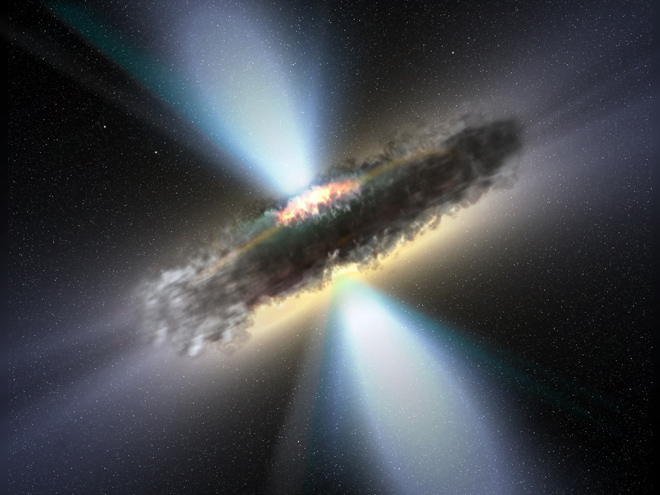Free Floating Water?
November 16, 2021
Believe it or not, over 12 billion light-years away there is a water reservoir that holds 140 trillions times the amount of water on Earth. Water has always been something astronomers look for when exploring, as its presence begs the question of whether life is around or if there used to be life on a specific planet. So, where exactly is this water mass, and how was it discovered?
Outside of the Milky Way, there is “a quasar – a massively powerful cosmic body –” or a black hole surrounded by all this water. To this day, it is the most water found in one spot in the universe. It’s not uncommon to find water in space, but most water found within the milky way is in the form of ice, so to find this much water in liquid form is quite the discovery. What’s most impressive is the quasar itself; they’re considered one of the most powerful things found within the universe. They produce significantly more energy than the sun does, making it seem weak and feeble by comparison. It just goes to show how much more there is to space then our tiny solar system we’re all accustomed to learning about in school.
Many astronomers expect there to be water all over, especially in the earlier stages of the universe (many light-years away). A team from Hawaii, working from the Caltech Submillimeter Observatory, uses Z-Spec, which uses a spectrograph to detect things many light-years away and is also said to be the most sensitive out of all the ones made. Spectrographs work in a way that they separate “incoming light by its wavelength or frequency and record the resulting spectrum in some kind of multichannel detector.” Many subsequent missions were put to the test after this one to learn more about how the powerful mass is growing and how big it might become. It’s expected to grow to 6 times its size just from the vapor and other materials around that it sucks up. Astronomers aren’t exactly sure if it‘ll grow to that size or what other things may happen, but with the resources present, that’s the hypothesis.
Now when is the next mission so we can go swim in it, am I right? Unfortunately, you’d burn up if you even got relatively close to it; but it’s still an amazing discovery. There’s a lot to investigate and learn from this promising discovery, and it raises many questions. Is there extra life out there? What might be in there? Is it like the ocean? And where did the water come from? There are many unanswered questions from outside the Milky Way, let’s see what’s discovered next.
